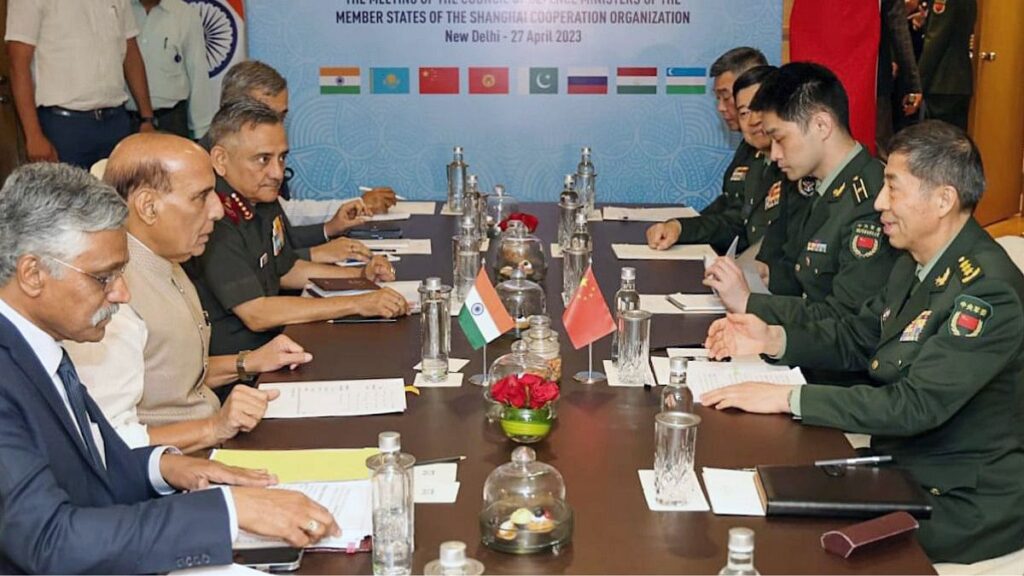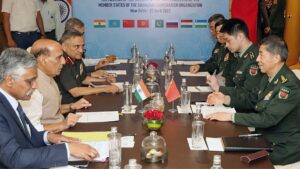China prove diplomacy without strength is fruitless

India and China, sans fanfare, met on a Sunday to hold the 18th round of Corps Commander level negotiations. The talks were conducted in an unusually silent manner, with no prior announcements, and also that the two sides could not even be bothered to issue a joint statement.
Or that it was not possible to arrive at a joint statement. Both are reasonable assumptions given that well nigh three years after the bloody clashes in Ladakh the two sides have yet to return to positions held before April 2020, geographic as well as linguistic. Goalposts have since shifted dramatically, maybe irrevocably.
Given that India’s Defence Minister Rajnath Singh is to meet his Chinese counterpart Gen Li Shangfu on 27 April, the Sunday talks may well have been pushed through to keep the diplomatic environment conducive.
Since the Shanghai Cooperation Organisation defence ministers are then meeting on 28 April, it would be a major embarrassment had the Ladakh talks turned hostile. That would have cast a shadow over the widely anticipated event. Which is what the efforts to resolve the Ladakh stand-off have now really become, a routine event. The text of the official briefings truly reflects the repetitive nature of things.
While the Indian statement continued from where it had left off the last time, “In line with the guidance provided by the State leaders and further to the meeting between the two foreign ministers in March 2023, they had an exchange of views in an open and candid manner”, the Chinese had an additional line that stood out, “Speed up the settlement of relevant issues on the western section of the China-India boundary”.
A clue to this speedy settlement lies in an article in Global Times, widely regarded as the English language mouthpiece of the Chinese Communist Party, and a sounding board as well.
On the talks at Chushul-Moldo Border Meeting Point, Global Times wrote, “China and India held the 18th round of corps commander level meeting on Sunday, a move Chinese experts said on Monday showed that the border issue is shifting from a standoff to normalised management”.
When one side is convinced that normalised management has been arrived at, then it naturally has expectations of reaching a speedy settlement. Especially given that the extended negotiations have repeatedly resulted in disengagement agreements that have tended to favour the Chinese position. India has conceded patrolling rights over lands that has negatively affected civilian life.
The concessions have, unfortunately, extended to military positions as well for since April 2020 the tale has been that of territorial concessions. The accumulated losses are now estimated to be almost 1000sq km.
For the sake of ‘peace and tranquility’ on the border, India has conceded tactically important positions as well, which was evident over the disengagement in Kailash Range. All eyes are now on the extremely critical Depsang and Demchok areas where no breakthroughs have been achieved. But any concessions here would be akin to a colossal military debacle. Clearly, negotiating lessons from history have not been absorbed.






